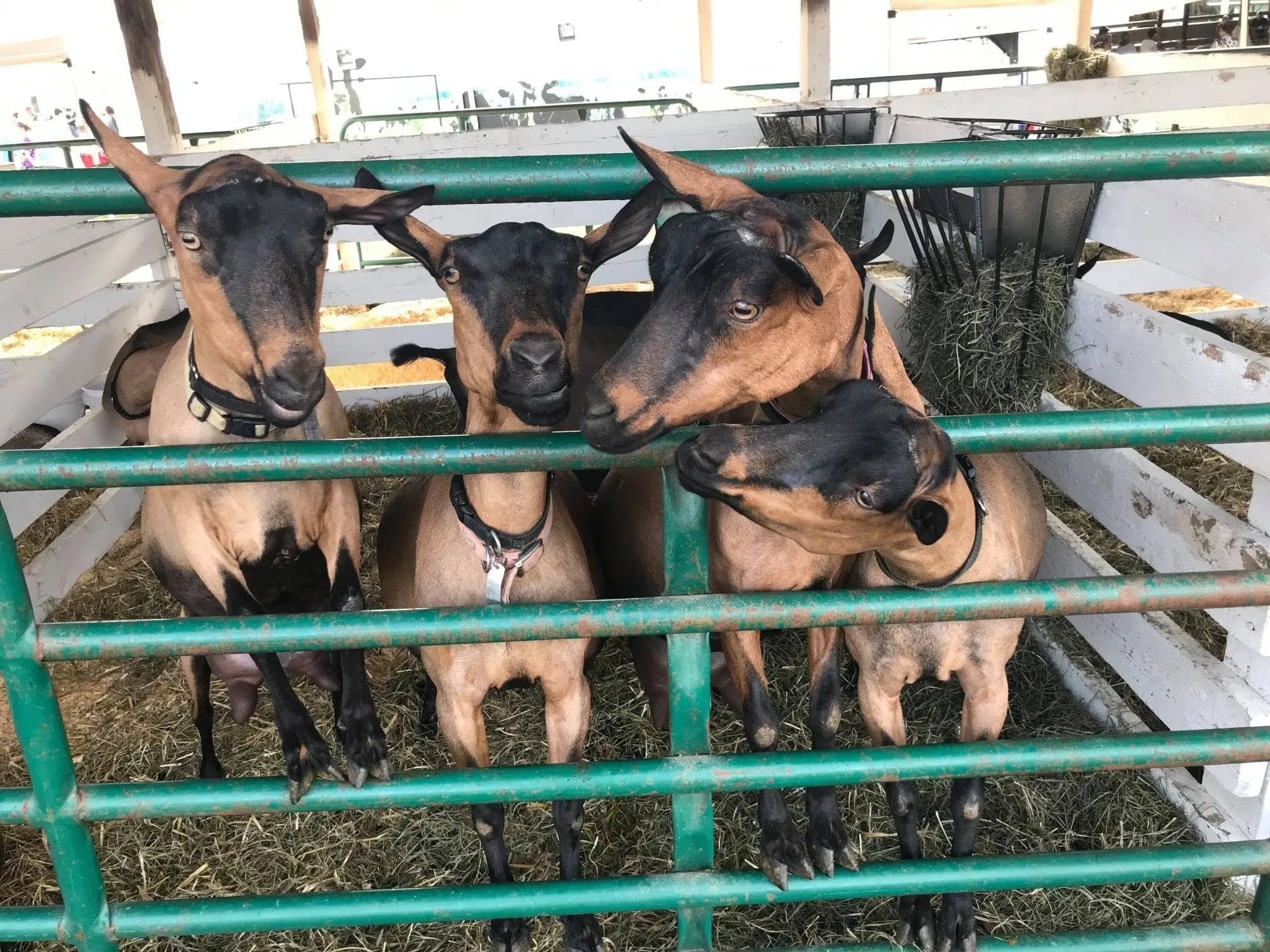As the Montana Vet Diagnostic Lab is now offering a quick, accurate, and relatively inexpensive blood/serum ELISA test for Caprine Arthritis Encephalitis, aka CAE, let’s do a quick delve into this disease and why we worry about it in our goat herds and companions. Signs of CAE in adult goats include: chronic joint discomfort (the arthritis), mastitis, general unthriftiness, or occasionally in less than 6 month old kids, neurologic signs (the encephalitis). Unfortunately, goats are often infected with CAE but show no signs at all.
Caprine Arthritis Encephalitis is a lentivirus, in the same viral family as human HIV, and it slowly and systemically infects the body. Humans cannot get CAE, nor can most other animals, with the possible exception of sheep. CAE can be transmitted to other goats in any bodily secretions that include white blood cells (which includes milk and blood). CAE is most likely to be transmitted in milk from the doe to her kids, but can also be transmitted through contact with infected blood or feces. Animals are infected (and their body secretions are infectious) for life, and unfortunately at this point there is no cure for the disease. The good news is that CAE does not survive long in the soil, < 8 days as long as no CAE positive goats are present.
How do we deal with this? The best answer is monitoring through testing! Washington State recommends routine testing twice annually and ideally before kidding. We recommend testing all adult goats prior to introduction into a herd or prior to new ownership, or prior to off-site breeding. It’s best to wait until kids are at 6 months of age or older, as earlier tests can result in false positives. Testing is best done at an AAVLD or A2A accredited lab to ensure quality testing.
Getting a positive CAE test result from an accredited lab can be devastating because of its implications for your herd. To completely eliminate CAE, you have to remove any infected goat from your herd. At that point, the answer is repeated testing to ensure the rest of your herd is negative. People do sometimes instead elect to accept their herd as CAE-positive, adjusting to create a more biosecure system and decrease the risk of transfer within the herd (for example, taking kids from does at birth and feeding pasteurized or uninfected milk or replacer).
CAE (both the testing, and what exactly the results mean) can be stressful, and we are happy to help discuss what biosecurity testing program works best for your herds/pets. Washington State’s Veterinary Diagnostic Lab’s Website has good information on CAE (as well as Caseous Lymphadenitis (CL) and Johne’s, two other important communicable diseases) under their “Animal Disease FAQ section.” To discuss any questions/concerns or to schedule an appointment to talk about your personal operation - please feel free to contact Magdi Niedermeyer, our large animal vet, at 406-777-3844 ext. 3.

